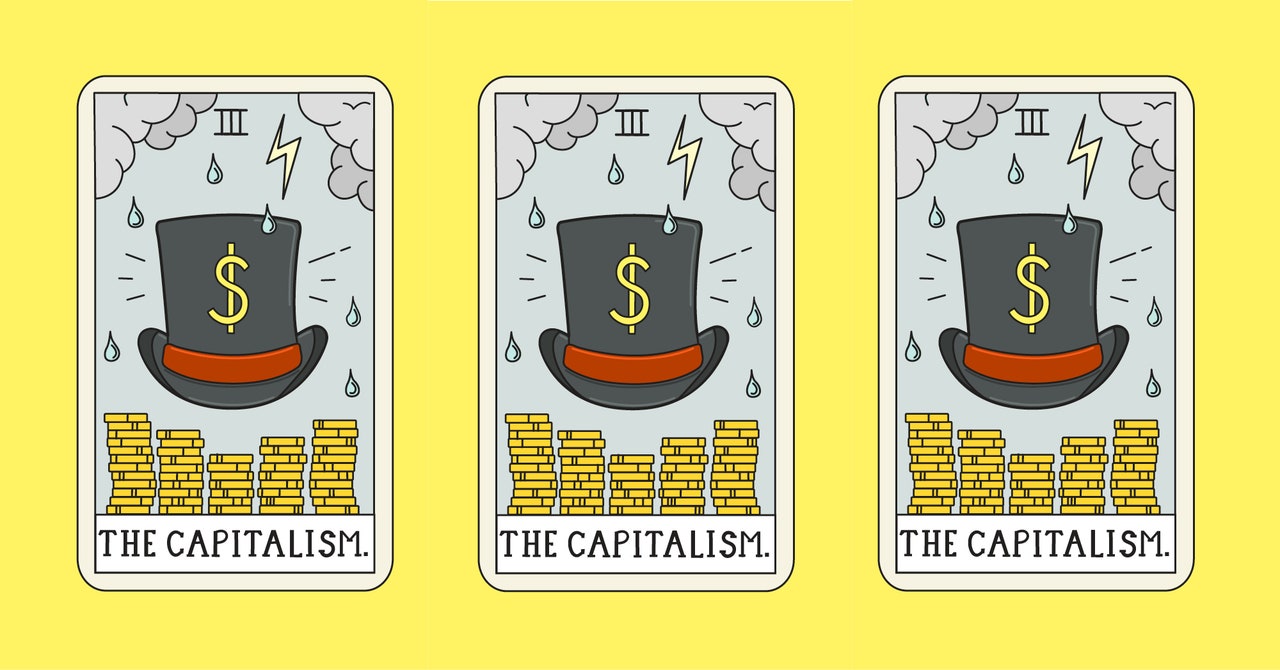“Capitalism” is derived from capital, which evolved from capitale, a late Latin word based on caput, meaning “head”—which is also the origin of “chattel” and “cattle” in the sense of movable property (only much later to refer only to livestock).
Capitalism is often thought of as an economic system in which private actors own and control property in accord with their interests, and demand and supply freely set prices in markets in a way that can serve the best interests of society. The essential feature of capitalism is the motive to make a profit.
Capitalism refers to an economic system in which a society’s means of production are held by private individuals or organizations, not the government, and where products, prices, and the distribution of goods are determined mainly by competition in a free market.
Characteristics of Capitalism
- Private Property. Private property rights are essential to capitalism.
- Innovation. It was the first modern economist, Adam Smith, who noted in 1776 that individuals naturally seek their own advantage.
- Division of Labor.
- Price.
- Profit.
- Rules.
- Goods and Services.
These capitalist economies operate on the pillars of private property, supply, and demand, competition, freedom, and incentive. Today we will explore what these entail when it comes to capitalism.
Capitalism—unlike socialism, Marxism or authoritarianism—rewards individual innovation and work ethic. Anyone can improve their station in life by hard work or coming up with a new idea.
Capitalism affords economic freedom, consumer choice, and economic growth. Socialism, which is an economy controlled by the state and planned by a central planning authority, provides for a greater social welfare and decreases business fluctuations.
Who invented capitalism? Modern capitalist theory is traditionally traced to the 18th-century treatise An Inquiry into the Nature and Causes of the Wealth of Nations by Scottish political economist Adam Smith, and the origins of capitalism as an economic system can be placed in the 16th century.
While pure capitalism in a country represents a free market economy, the elements of communism are easily seen in command economies. Furthermore, capitalism motivates entities to work hard and innovate to make a profit, whereas communism does not emphasize or focus on providing an incentive to trigger hard work.
6 Benefits Of Capitalism & Why We Love It
- Good Health. Thanks to the benefits of capitalism, every man, woman and child has the opportunity to eat fresh, wholesome foods every day.
- Social Contribution.
- Professional Services Choice.
- Healthy Competition.
- Personal Freedom.
- Ownership and Opportunity.
4 types of capitalism?
It classifies capitalist economies into four categories: oligarchic capitalism, state-guided capitalism, big-firm capitalism, and entrepreneurial capitalism.
Disadvantages of Capitalism
- Unequal distribution of wealth.
- Could result in costs to the environment.
- Propensity for industrial unrest.
- Labour could be under-valued and exploited.
- Capital could reside with a few people.
